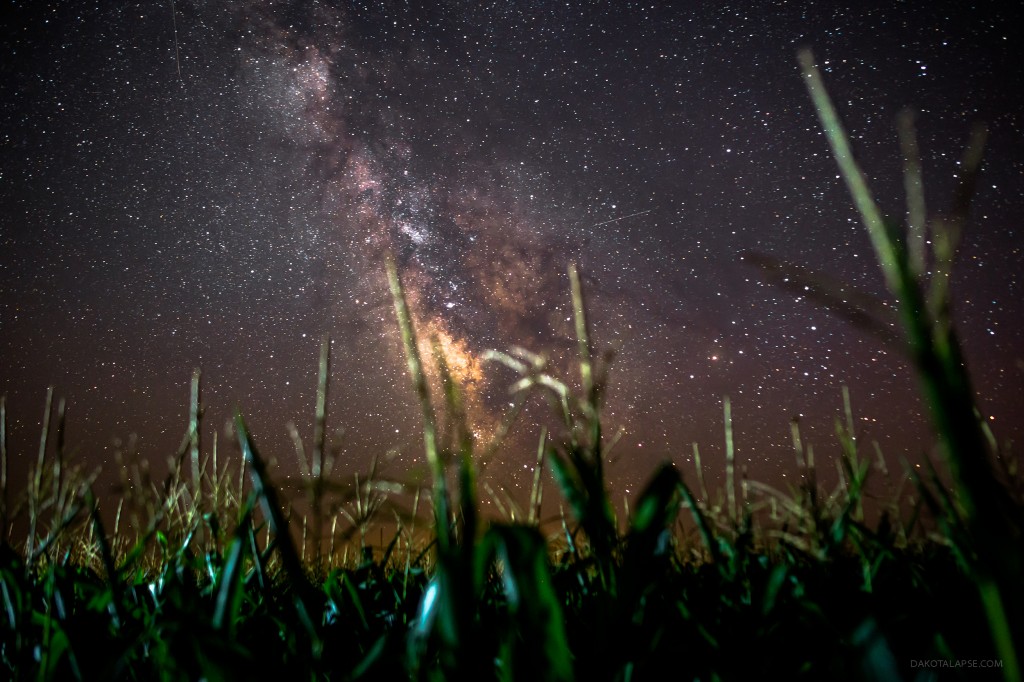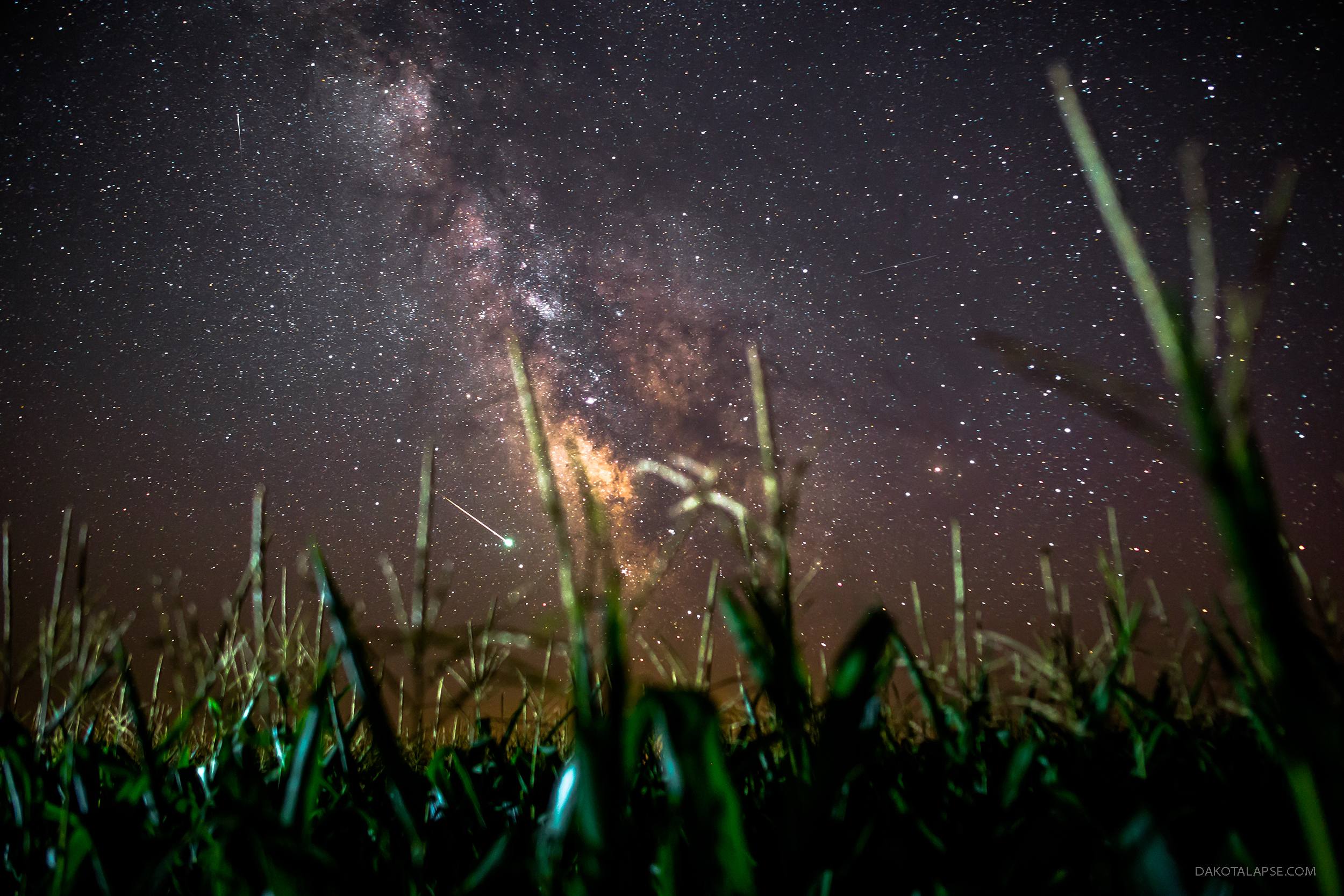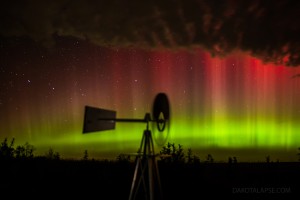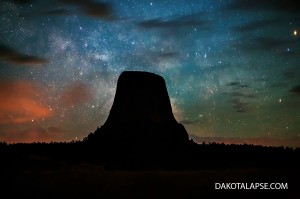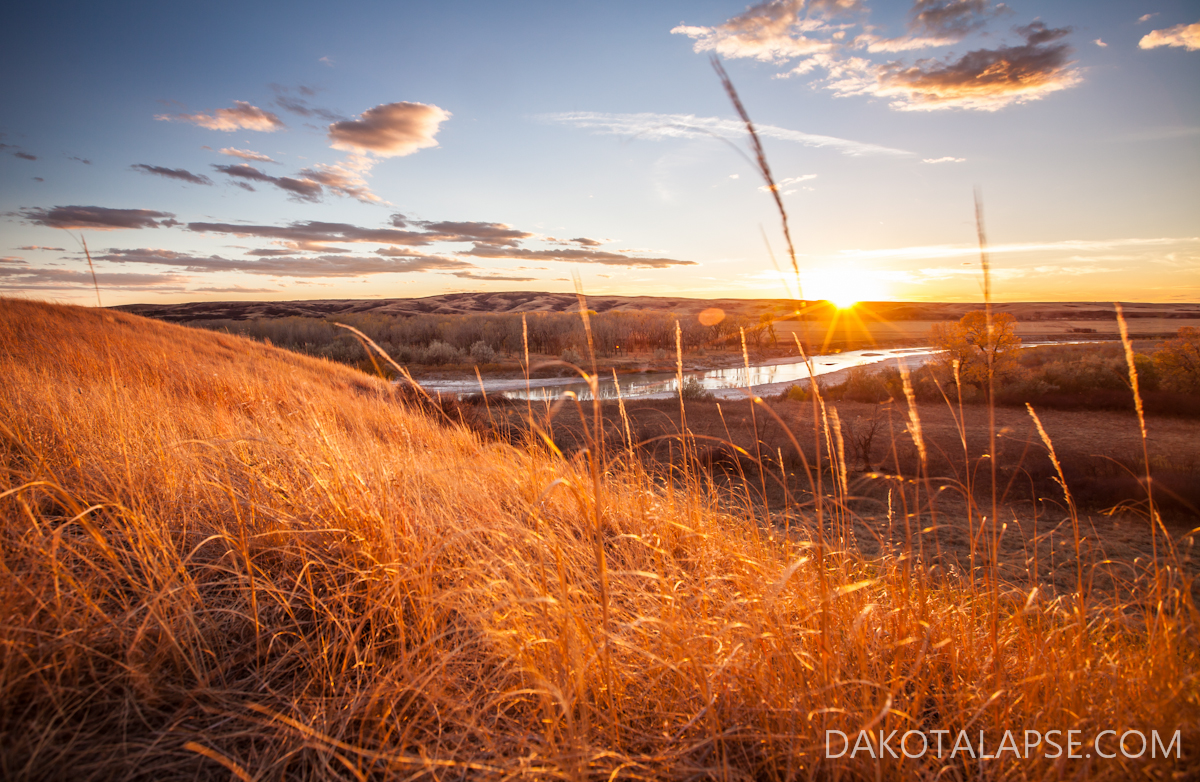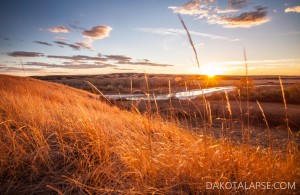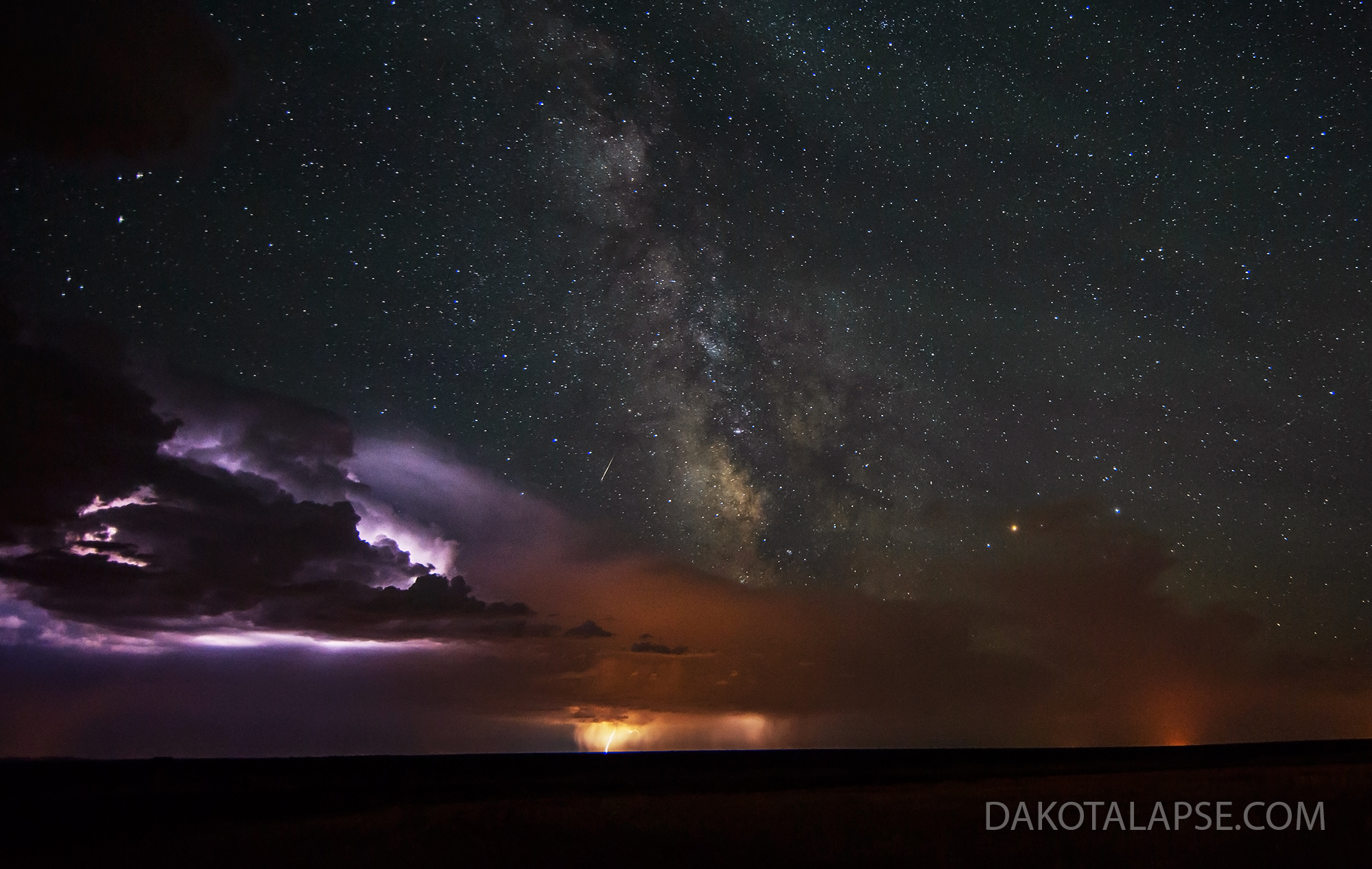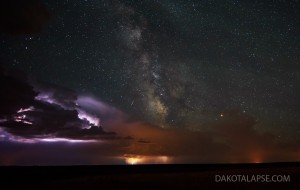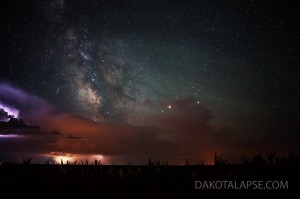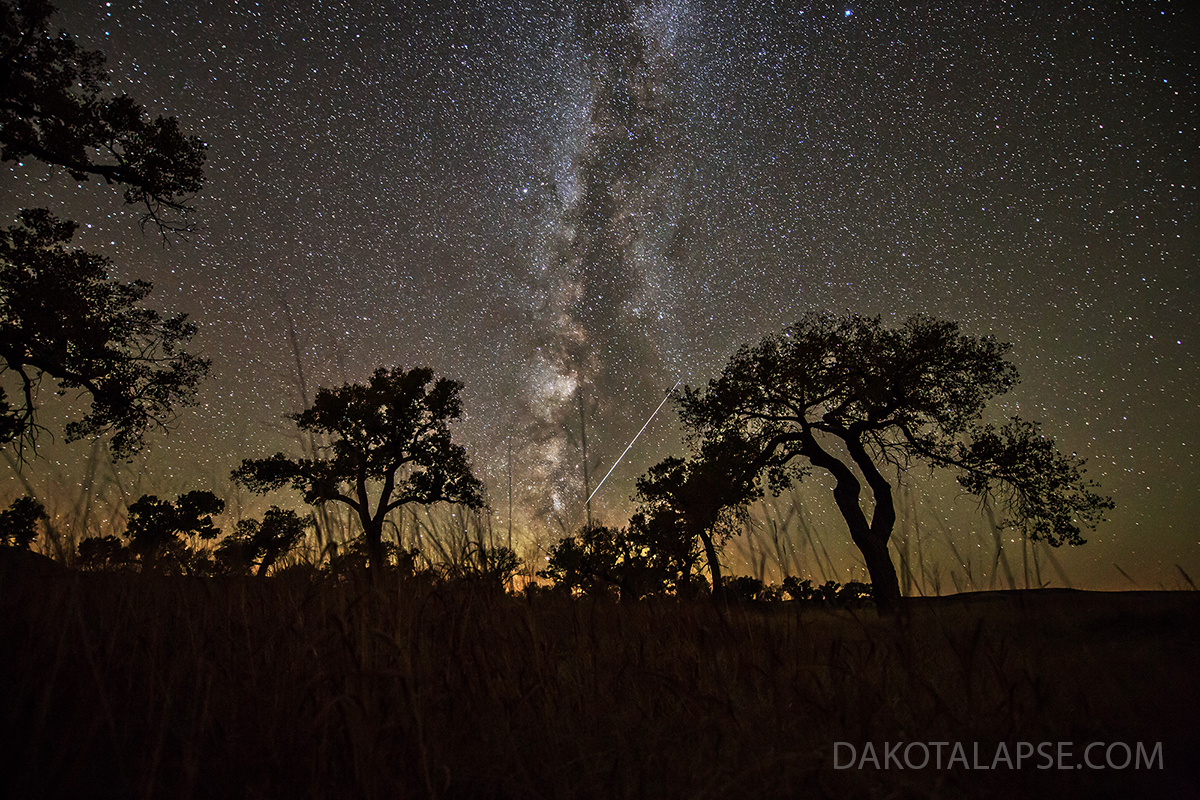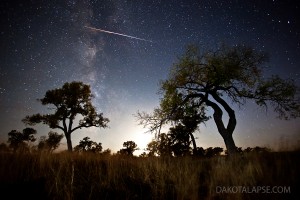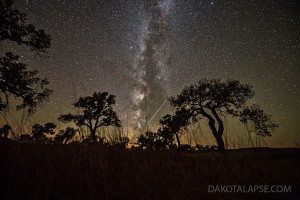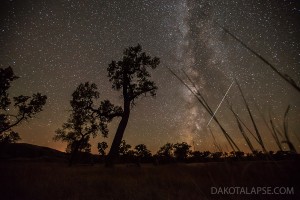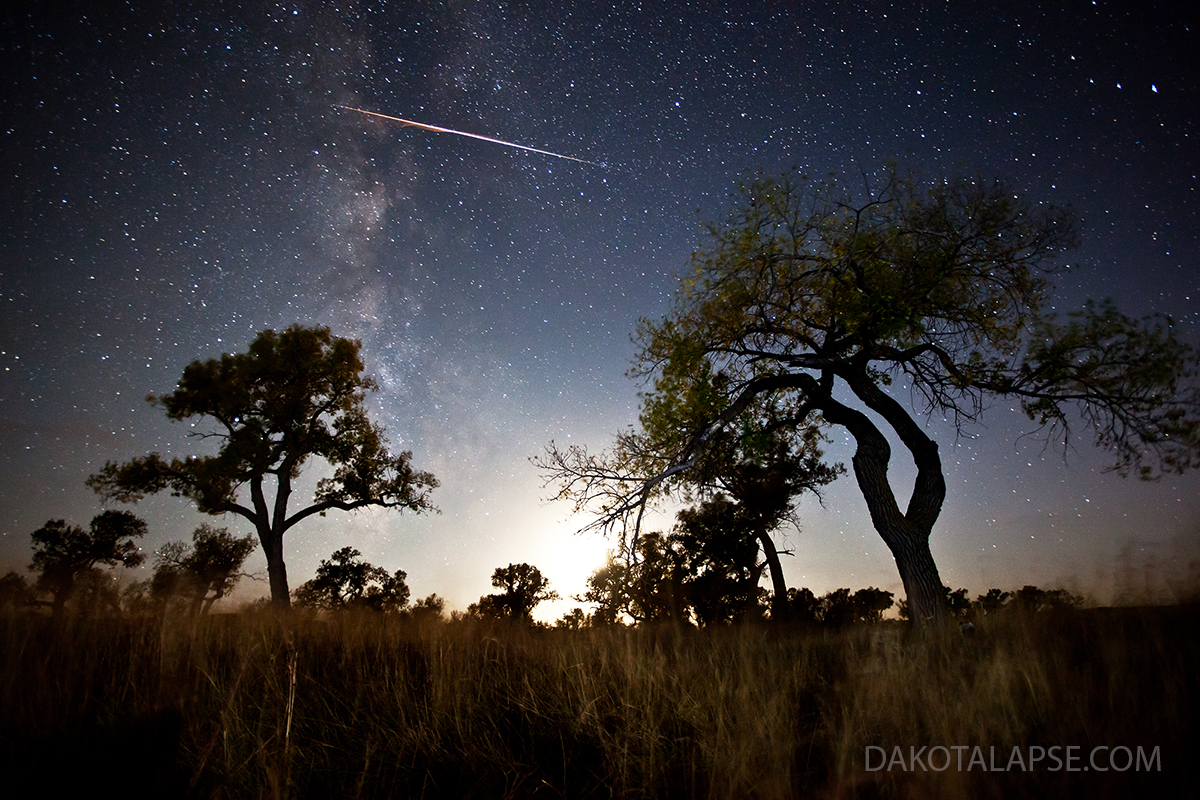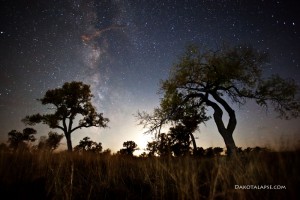These 2 timelapse frames are from my latest timelapse “Huelux”. Go to 3:20 in the video to see the timelapse.
A bright Satellite flash or Iridium flare, can sometimes look like a meteor in a long exposure star photo. If you are shooting timelapse, it is easy to distinguish between a meteor or satellite flash in the frames. Most meteors enter the atmosphere at 25,000 mph or faster, and burn up relatively fast at a much lower altitude than satellites.
If you are shooting a 30 second exposure with a 3 second interval, the meteor would have to be burning up for at least 34 seconds for it to show up in 2 consecutive frames. I have caught dozens of meteors in timelapse frames and seen many with my own eyes. The longest I have seen with my own eyes has lasted maybe 3 seconds. Satellites are moving much slower than meteors and are much higher, so they take longer to travel across the sky. So they will always be visible, even a faint trail, in 2 or more frames, if they are within the frame. Satellites are an important part of our exploration of space and they are put together with incredibly detailed technology and equipment like transmitters, solar panels, LVDT’s (you can look here for more information on this), to name a few, so to see one traveling across the sky at night is a sight to behold and we can only hope that it is not falling or breaking down.
In these two consecutive frames, you will see the bolide Meteor in the lower center, and a Satellite in the upper left, and another one to the right of the Milky Way core. This was 25 second exposures with a 3 second interval between the two photos. Click image to enlarge.

The Meteor is gone from the following frame, because it was travelling so fast and burned up, both satellites still have a trail. I think it also missed a bright part of the flare on the upper left Satellite, during the 3 second interval between shots. Some satellites will show up in 5 or more frames and will take minutes to cross the sky. Click image to enlarge.
